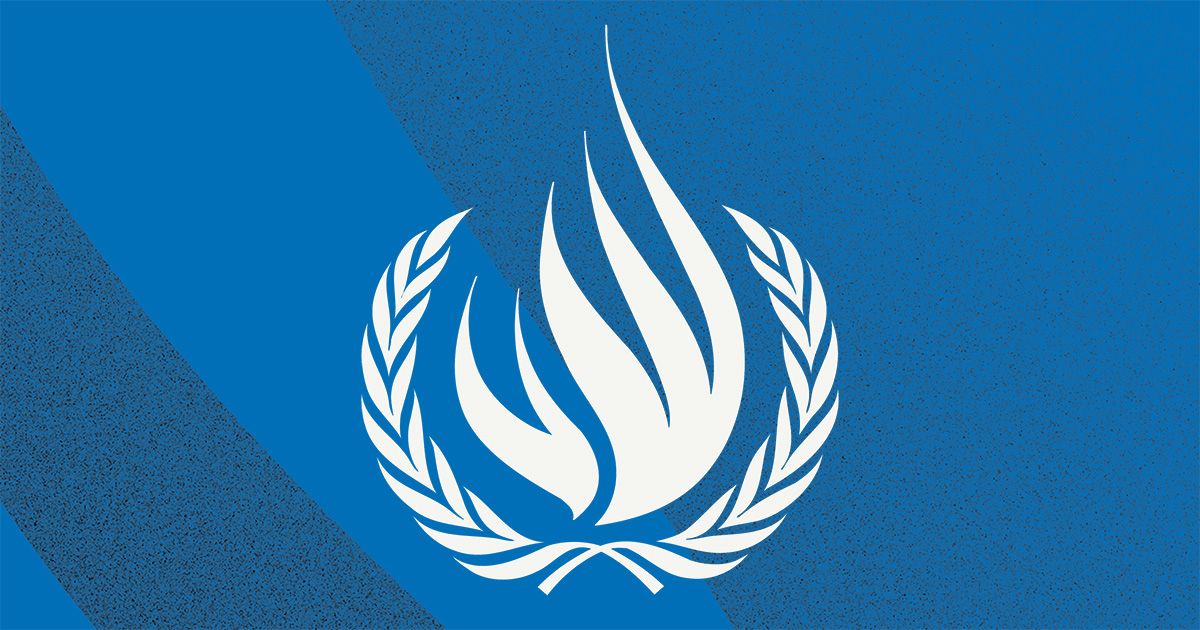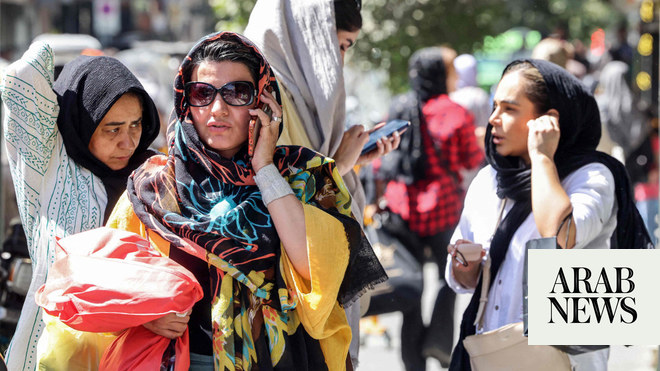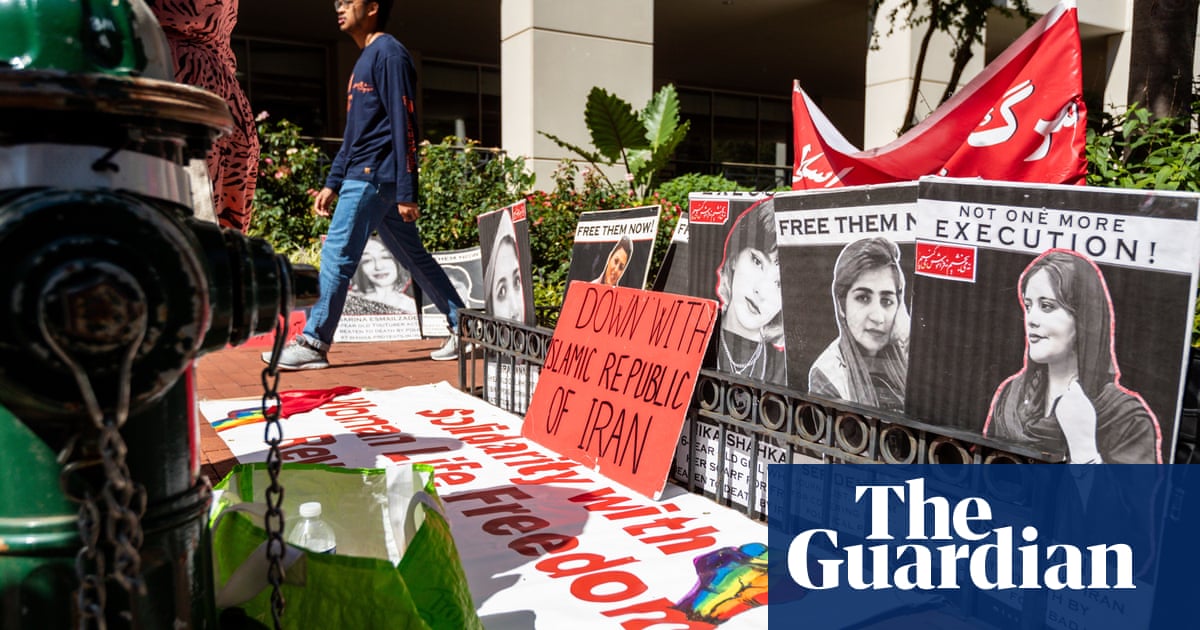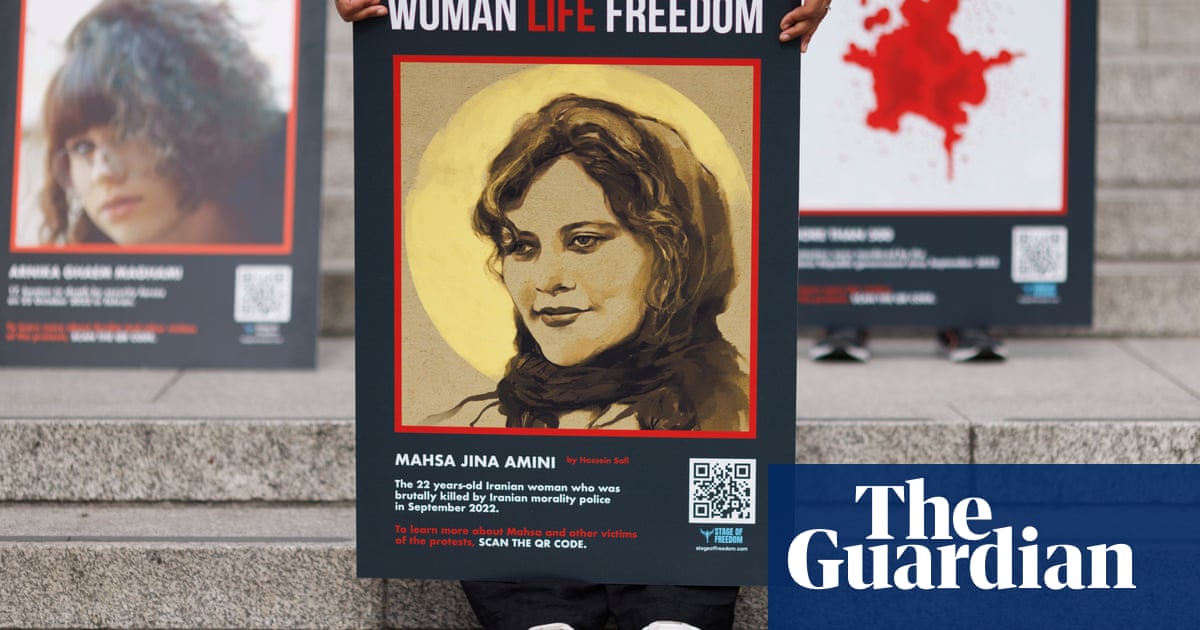
GENEVA (19 September 2023) – Iran has escalated its crackdown on dissent to prevent public commemoration of Jina Mahsa Amini’s death in police custody last year, UN experts* warned today, after authorities briefly detained her father and beefed-up security nationwide to deter protests planned to mark the anniversary of her death.
“Iran must account for the death of Jina Mahsa Amini in police custody last year and end its crackdown on protests sparked by her demise,” the experts said. “After months of brutally repressing demonstrations over the course of the past year, authorities have imposed restrictions and threatened reprisals against public commemorations planned to mark a year since Jina Mahsa Amini’s tragic death,” they said.
Jina Mahsa Amini, a 22-year-old Kurdish woman was found dead in police custody on 16 September 2022, after being arrested for failing to comply with Iran’s compulsory veiling or hijab laws. Her death sparked nationwide protests and unrest in Iran, and authorities responded with a brutal crackdown on demonstrators, arresting thousands and executing at least seven people in connection with the protests.
As the anniversary of her death neared, the UN experts received reports that authorities had detained the young woman’s father and warned him against marking the first anniversary of his daughter’s death before releasing him. Security forces surrounded Jina Mahsa Amini’s family home on 16 September, preventing the family from leaving their residence for a graveside memorial.
The heavy deployment of security forces in Tehran and several Kurdish cities appeared to have deterred large-scale public protests to mark Jina Mahsa Amini’s death anniversary. However, the experts received reports of security forces opening fire against protestors in the Kurdish city of Mahabad wounding at least one person. A 28-year-old man was shot by security forces on 16 September near the city of Saqqez, in Iran"s western Kurdish region near the cemetery where Jina Mahsa Amini is buried. His condition remains critical. Iranian State media also announced the arrest of more than 260 individuals across the country over the weekend in connection with the protests.
“In the past month, authorities detained dozens of human rights defenders, in what appeared to be a concerted effort to quash protests to mark the anniversary of last year’s demonstrations against Jina Mahsa Amini’s death,” the experts said.
“To date, State authorities have failed to conduct an independent, impartial, and transparent investigation into the death of Jina Mahsa Amini and have consistently denied any misconduct or wrongdoing on their part,” they said.
The experts said that while a “Special Committee to Investigate 2022 unrest” had been established and concluded investigations into Jina Mahsa’s death, the investigation had attributed her death to underlying medical conditions.
“We reiterate concerns previously expressed to the Iranian Government, that were reinforced by the Independent International Fact-Finding Mission on the Islamic Republic of Iran that the Government’s investigation may not have met international human rights norms and standards,” the UN experts said.
One year since Jina Mahsa Amini’s death, Iranian authorities have put new laws and practices in place to repress women and girls, the experts said.
“The Government of the Islamic Republic of Iran could have learned important lessons from the tragic death of Jina Mahsa Amini. But its response to the demonstrations that have led to the deaths of hundreds of protestors since September 2022 shows that authorities have chosen not to,” they said.
“We remain concerned and alarmed by the ongoing policies and practices in Iran which amount to total impunity for grave crimes committed under international law in the year that followed Jina Mahsa Amini’s death,” the experts said.
“Iranian authorities must end their crackdown against those who participated in the protests against Jina Mahsa Amini’s death and deliver justice and accountability for grave violations committed during the 2022 protests,” they said.
The experts expressed concern that family members of individuals who were executed in connection with the protests were either summoned to court or detained by authorities for seeking justice. They also noted a “concerning pattern” of mistreatment of human rights defenders, journalists, lawyers in custody.
ENDS
* The experts: Javaid Rehman, Special Rapporteur on the situation of human rights in the Islamic Republic of Iran; Irene Khan, Special Rapporteur on the promotion and protection of the right to freedom of opinion and expression; Mary Lawlor, Special Rapporteur on the situation of human rights defenders; Priya Gopalan (Chair-Rapporteur), Matthew Gillett (Vice-Chair on Communications), Ganna Yudkivska (Vice-Chair on Follow-Up), Miriam Estrada-Castillo, and Mumba Malila, Working Group on arbitrary detention; Margaret Satterthwaite, Special Rapporteur on the independence of judges and lawyers; Fernand De Varennes, Special Rapporteur on minority issues; Morris Tidball-Binz, Special Rapporteur on extrajudicial, summary or arbitrary executions; Alice Jill Edwards, Special Rapporteur on torture and other cruel, inhuman or degrading treatment or punishment; Dorothy Estrada Tanck (Chair), Elizabeth Broderick, Ivana Radačić, Meskerem Geset Techane and Melissa Upreti, Working group on discrimination against women and girls; Reem Asalem, Special Rapporteur on Women Against Violence, and Clément Nyaletsossi Voule, Special Rapporteur on the rights to freedom of peaceful assembly and of association
The Special Rapporteurs and Working Groups are part of what is known as the Special Procedures of the Human Rights Council. Special Procedures, the largest body of independent experts in the UN Human Rights system, is the general name of the Council"s independent fact-finding and monitoring mechanisms that address either specific country situations or thematic issues in all parts of the world. Special Procedures" experts work on a voluntary basis; they are not UN staff and do not receive a salary for their work. They are independent from any government or organization and serve in their individual capacity.
UN Human Rights, Country Page — Iran
For media inquiries related to other UN independent experts, please contact Maya Derouaz (maya.derouaz@un.org) or Dharisha Indraguptha (dharisha.indraguptha@un.org)
Follow news related to the UN"s independent human rights experts on Twitter @UN_SPExperts
Concerned about the world we live in?
Then STAND UP for someone’s rights today.
#Standup4humanrights
and visit the web page at http://www.standup4humanrights.org












